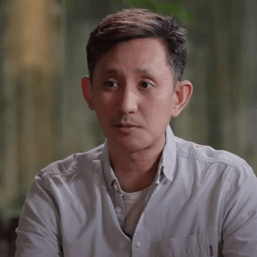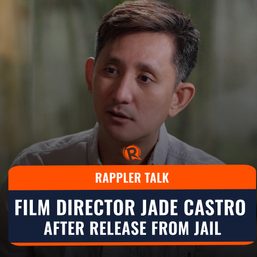SUMMARY
This is AI generated summarization, which may have errors. For context, always refer to the full article.

While the majority of Philippine cinema accessible to the public is in the Tagalog language, filmmakers in Cebu have been working to promote Cebuano-language cinema for the past decade with BINISAYA, a film festival that usually takes place in local theatres.
Ten years later, the mission remains the same: to promote Cebuano-language films, give local storytellers a platform locally and nationally.
And the mission goes beyond just getting people to watch movies.
Regional films promote understanding
“If you understand each other, the conflicts lessen,” said Keith Deligero, an award-winning film director, who has directed Bisaya films featured in other festivals like Cinema One Originals, Cinemalaya and QCinema.
“We might be more peaceful people after that because no matter how different our languages are, we would still understand each other,” Deligero added. “We have the same struggles, things we aspire for.”
Film producer Danielle Aballe-de los Reyes explained that it’s easy for audiences to say no to regional films than to give it a chance because they may be accustomed to seeing films in English or the Tagalog-based Filipino language.
“For me, with the case of regional films, any people who consume mainstream films, our mainstream here, anything from the regions will have misconceptions,” De los Reyes said. “People would always develop misconceptions from the regions because they don’t know the stories there. And it depends on the audience on how they take it.”
She said giving regional films a chance, whether in Bisaya or other languages and local cultures, would help break common stereotypes about non-Tagalog or non-Manileño Filipino cultures.
“People have expectations about the kind of films that they want churned out by machinery. Every time there’s something new from the regions, they always think it’s different,” de los Reyes said. “The truth is, these are truths of the people living places outside of where you live.”
The Cebuano film producer said that she hopes people would eventually be open to watching the different stories and films coming from people who are actually from those areas. “It takes a lot of learning to accept that. Hopefully at some point when people will learn to watch these films and watch with different eyes.”

Slow change
However, things are slowly changing, and the filmmakers believe that it’s not necessarily demand for local stories that’s stopping bigger studios from producing more of them.
“There’s a tendency to believe that because it’s Bisaya, and not Tagalog, it won’t sell,” Deligero said. “It’s proven that there’s an audience for Bisaya films,” he added.
The Lily and A Short History of a Few Bad Things director said: “Filipinos are ready for not necessarily Tagalog-only films. We watch anime. And Thai films with subtitles, so what’s the difference with watching an Ilocano, or Chavacano or Cebuano film. What’s stops it is the ones who sells films”
Remton Zuasola, another Cebuano filmmaker who has directed films in Manila and back home in Cebu, said he’s seen audiences in Manila line-up for Cebuano movies.
“I noticed when Bisaya film screen in Manila, a lot of people actually go because it’s not every day that you have a Bisaya film showing. It’s like a snack, it’s not yet a main course where you wouldn’t live if you don’t eat,” he said.
Zuasola, who won a Gawad Urian Award in 2011 for his direction of Damgo ni Eleuteria, said that he’s confident that regional cinema across the Philippines will develop, but acknowledges it may be happening slower than it should.
“There’s this movement cultivating regional cinema in the Visayas, everywhere in the Philippines, it’s happening. We’ll probably reach that time too.” he said.
Zuasola said that while some have suggested that some entertainment industry creatives packaging “regional films” as simply “Filipino films,” he prefers to still brand his films as “regional” – at least for now.
“For me, we need to be recognized, we need people to know we exist,” Zuasola said. “We need to brand the product as a regional film, until it becomes commonplace,” he added
Online film festival
This year, due to the pandemic, the festival had to go online as movie houses are still shut down across Cebu City.
Deligero said that this has actually made it easier because they no longer have to do on-the-ground work like book movie theatres and deal with other logistics that come with organizing a film festival.
“I think despite the pandemic, it’s been the easiest edition to mount, because there’s no heavy lifting,” Deligero said. “Maybe it’s a bit more relaxed because everything we do is online,” he said.
This year they’re making use of video stream platforms that allow content creators to charge the festival fee, as well as social media, to engage their audience.
For more information on BINISAYA, which runs until October 17, and how you can watch the films, check out the group’s Facebook page here. – Rappler.com
Add a comment
How does this make you feel?






There are no comments yet. Add your comment to start the conversation.